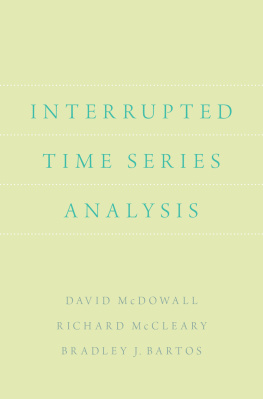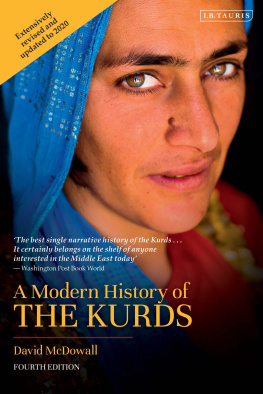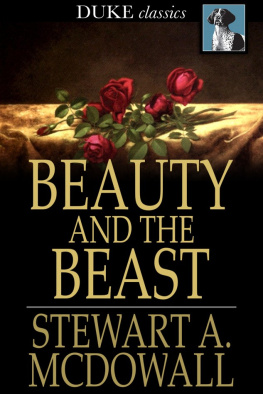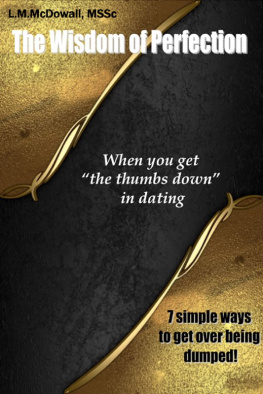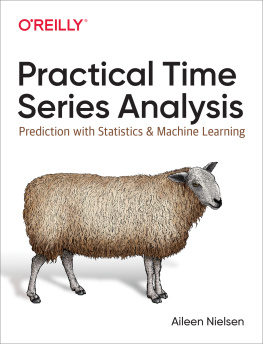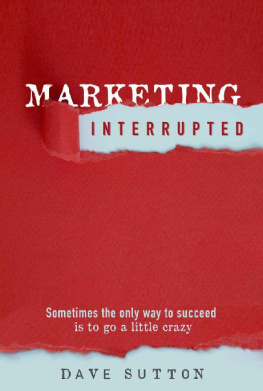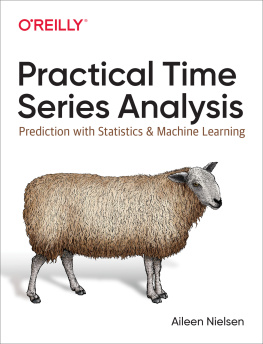David McDowall - Interrupted Time Series Analysis
Here you can read online David McDowall - Interrupted Time Series Analysis full text of the book (entire story) in english for free. Download pdf and epub, get meaning, cover and reviews about this ebook. year: 2019, publisher: OUP Premium, genre: Home and family. Description of the work, (preface) as well as reviews are available. Best literature library LitArk.com created for fans of good reading and offers a wide selection of genres:
Romance novel
Science fiction
Adventure
Detective
Science
History
Home and family
Prose
Art
Politics
Computer
Non-fiction
Religion
Business
Children
Humor
Choose a favorite category and find really read worthwhile books. Enjoy immersion in the world of imagination, feel the emotions of the characters or learn something new for yourself, make an fascinating discovery.
- Book:Interrupted Time Series Analysis
- Author:
- Publisher:OUP Premium
- Genre:
- Year:2019
- Rating:5 / 5
- Favourites:Add to favourites
- Your mark:
- 100
- 1
- 2
- 3
- 4
- 5
Interrupted Time Series Analysis: summary, description and annotation
We offer to read an annotation, description, summary or preface (depends on what the author of the book "Interrupted Time Series Analysis" wrote himself). If you haven't found the necessary information about the book — write in the comments, we will try to find it.
Interrupted Time Series Analysis — read online for free the complete book (whole text) full work
Below is the text of the book, divided by pages. System saving the place of the last page read, allows you to conveniently read the book "Interrupted Time Series Analysis" online for free, without having to search again every time where you left off. Put a bookmark, and you can go to the page where you finished reading at any time.
Font size:
Interval:
Bookmark:

Interrupted Time Series provides excellent opportunities for substantive analyses of experimental interventions to address fundamental questions in the social sciences. This book provides updated expositions of related statistical issues of design, estimation, and interpretation of such interruptions. It will be of great value both for classroom use and for individual researchers.
Kenneth Land, John Franklin Crowell Professor Emeritus of Sociology, Duke University
ITSA, the ideal vademecum for DATSE.
Gene V. Glass, Senior Researcher, National Education Policy Center, University of Colorado Regents Professor Emeritus, Arizona State University
When Drs. McCleary, McDowall, and Bartos developed their innovative Design and Analysis of Time Series Experiments (DATSE) book in 2017, they also produced an important companion text, Interrupted Time Series Analysis (ITSA). The ITSA volume provides researchers with a very comprehensive set of analytic tools for drawing causal inferences from time-series experiments. ITSA is not only a value-added work, but a critical addition to researchers interested in time-series methodology and optional methods of data analysis. I highly recommend it to researchers interested in time-series research including those involved in single-case methodology. These works will be classics.
Thomas R. Kratochwill, Sears-Bascom Professor of Education, University of Wisconsin-Madison
This book combats the perception that looking at the data beforehand is cheating, that the best way to deal with data is to run it blindly through a statistical mincing machine (like one of the four SsSAS, SPSS, Stata, Systat) and look for a sufficiently low p-value. It shows the benefit of understanding the datas characteristics beforehand.
Michael D. Maltz, Professor Emeritus of Criminal Justice and of Information and Decision Sciences, University of Illinois at Chicago Adjunct Professor of Sociology, Ohio State University
ITSA presents an excellent exposition of ideas not just about time series, but interrupted time series, which is what most social scientists and policy analysts need to know. There is a thorough discussion of types of effects: permanent vs temporary, sudden vs gradual; these dichotomies are crucial to the accurate characterization of effects. One issue that separates the approach here from the usual time-series models is that Rubins causal model (RCM) is integrated into a discussion of whether and when causality inferences are warranted. RCM leads to development of a synthetic counterfactual control time series, another innovation not discussed in many places. This would be an excellent text for a one-semester course on using time series to investigate the effects of policy changes on the behavior of individuals and organizations.
David Rindskopf, Distinguished Professor, CUNY Graduate Center
McDowall, McCleary, and Bartos provide a concise and accessible introduction to the use of ARIMA models for analyzing interrupted time-series quasi-experiments. This practical guide will be of great help to applied analysts in public policy evaluation, economics, epidemiology, public health, and education research. Includes chapters on recent advances to the method, such as the use of synthetic controls.
Alexander C. Wagenaar, Professor Emeritus, University of Florida College of Medicine Research Professor, Emory University Rollins School of Public Health

Oxford University Press is a department of the University of Oxford. It furthers the Universitys objective of excellence in research, scholarship, and education by publishing worldwide. Oxford is a registered trade mark of Oxford University Press in the UK and certain other countries.
Published in the United States of America by Oxford University Press
198 Madison Avenue, New York, NY 10016, United States of America.
Oxford University Press 2019
All rights reserved. No part of this publication may be reproduced, stored in a retrieval system, or transmitted, in any form or by any means, without the prior permission in writing of Oxford University Press, or as expressly permitted by law, by license, or under terms agreed with the appropriate reproduction rights organization. Inquiries concerning reproduction outside the scope of the above should be sent to the Rights Department, Oxford University Press, at the address above.
You must not circulate this work in any other form and you must impose this same condition on any acquirer.
Library of Congress Cataloging-in-Publication Data
Names: McDowall, David, 1949 author.|McCleary, Richard, author. | Bartos, Bradley J., author.
Title: Interrupted time series analysis / David McDowall,
Richard McCleary, Bradley J. Bartos.
Description: New York, NY : Oxford University Press, 2019. | Includes bibliographical references and index.
Identifiers: LCCN 2018059967 | ISBN 9780190943943 (hardcover : alk. paper) | ISBN 9780190943950 (pbk. : alk. paper) | ISBN 9780190943974 (electronic) | ISBN 9780190943981 (Oxford scholarship online)
Subjects: LCSH: Time-series analysis. | Experimental design. | Social sciencesStatistical methods.
Classification: LCC HA30.3 .M34 2019 | DDC 001.4/22dc23
LC record available at https://lccn.loc.gov/2018059967
Fifty years ago, we coined the phrase interrupted time series analysis( ITSA) to describe a box of tools that could be used to estimate the impacts of discrete interventions on a sequence of observations or time series. The invention was dictated by editorial necessity: An editor (whose name we can no longer recall) had demanded a neologism suitable for a new book title. Of the two or three neologisms that we suggested, ITSA was our least favorite. For one thing, it presented an obvious straight line for scholarly wags ( analysis interruptus). But worse, it seemed to exalt the role of statistical tools over all others. As the popular acceptance of ITSA grows, howeversee McCleary and McDowall (2012)our initial dislike of the title fades.
This present toolbox is the product of an eight-year collaboration. During the collaborationand for many prior yearswe benefited from discussions with and feedback and criticism from teachers, colleagues, and students. Teachers include Howie Becker, Dick Berk, Don Campbell, Tom Cook, Ken Land, and George Tiao. Their influence should be apparent. Colleagues include Tim Bruckner, Ray Catalano, Keith Hawton, Tom Kratochwill, Charis Kubrin, Lon-Mu Liu, Colin Loftin, Errol Meidinger, Curt Sandman, Will Shadish, Sheldon Stone, Bryan Sykes, Alex Wagenaar, and Brian Wiersema. They have been generous with their time and advice. Students include Chris Bates, Mitch Chamlin, Christine Champion, Gina Fong Chen, Jun Chu, Jason Gravel, Michelle Mioduszewski, Carol Newark, Matt Renner, Sanjeev Sridharan, and Doug Wiebe. And of course, we cannot forget our debt to the editor who demanded a neologistic title.
In addition to the contributions of teachers, colleagues, and students, neither ITSA nor its sister volume, Design and Analysis of Time Series Experiments ( DATSE), could have been written without the early support and intellectual nurturing of Tom Cook. Readers should recognize not only Toms approach to causal inference but, also, his narrative style. The influence of Will Shadish should also be apparent. Over eight years, Will supplied data, advice, comments, and support. Although Will reviewed manuscript copies of both books, he passed shortly before their publication. He will be missed. Another person played a central role in both books: Gene Glass. Our interest in time series experiments originated with Glass, Willson, and Gottman (1975). Along with the larger body of work, Gene has been a constant vicarious source of inspiration.
Font size:
Interval:
Bookmark:
Similar books «Interrupted Time Series Analysis»
Look at similar books to Interrupted Time Series Analysis. We have selected literature similar in name and meaning in the hope of providing readers with more options to find new, interesting, not yet read works.
Discussion, reviews of the book Interrupted Time Series Analysis and just readers' own opinions. Leave your comments, write what you think about the work, its meaning or the main characters. Specify what exactly you liked and what you didn't like, and why you think so.

